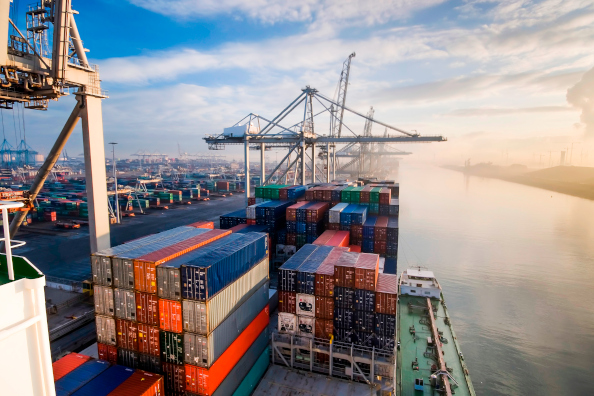Congested ports, sourcing problems and labor scarcity are just some of the problems that have led to broken supply chains in recent years. The resiliency of the global supply chain has been a matter of discussion in boardrooms of firms big and small.
Management consulting firm Kearney has been heavily involved in discussions over the past few years with executives looking for a path forward in building supply chain resiliency and excellence.
“Understandably, supply chains have been a regular topic of discussion in the news and top of mind for executives over the past few years,” Kearney associate partner Rupal Deshmukh says. “Supply chain excellence has long been critical to business success, and now more than ever there is a strong need for agile end-to-end supply chains to avoid disruption and supply shocks while ensuring that product gets to market in a timely fashion.”
But, the speed at which Kearney has been able to garner insights from its own internal research has been slowed because, like supply chains themselves, the data has resided in various divisions of the firm. That is changing.
New focused effort
Deshmukh, a supply chain expert, will guide a new initiative inside Kearney focused on building out the most resilient supply chains. The Kearney Supply Chain Institute will help promote the firm’s legacy operations, studies and competitions, including the annual Assessment of Excellence in Procurement (AEP), Global Factory of the Year competition, Reshoring Index report, and State of Logistics Report.
In a recent interview, she told Supply Chain Management Review the Institute will bring together the various reports and data Kearney collects and put them under a single roof, increasing the speed at which Kearney’s experts can respond to current supply chain events.
“We realized we were publishing articles in silos,” Deshmukh says, noting that Kearney’s Reshoring Index and annual State of Logistics report offer a vision of what the institute is capable. “If you think about those two pieces, there is no reason why you couldn’t marry those things together and get more powerful insights. We were not really connecting it together.”
Deshmukh said when Kearney looked at industry sources, including publications and advisory groups, the company saw “white space for authority on supply chain trends.”
“Instead of C-suites (looking for information), we wanted to bring it together for them,” she adds.
Resiliency is a priority
Resiliency will play a big role in the Institute. A Kearney study conducted in collaboration with Amazon Web Services found that 56% of COOs surveyed consider resilience a top priority. The study, “Optimism in operations: why COOs are the key to corporate regeneration,” also found that resilience is now a KPI in 80% of organizations.
Kearney said it will also use the Institute to promote efforts like its work with the World Economic Forum, which led to the creation of The Resiliency Compass, a framework companies use to assess their value chain resilience across eight key dimensions. Moreover, the Institute will partner with Kearney’s Global Business Policy Council, which translates macro insights at the market, sector, and firm level to improve strategic planning and performance.
A newly formed board of advisors from outside the firm will ensure the Institute remains focused on critical and timely focus areas.
“Kearney has a proud history as the global leader in supply chain consulting, and we remain on the leading edge in an age where human intelligence, AI, and automation are combining to create supply chains that power growth, control costs, improve resilience, and enhance sustainability,” says Kearney partner Suketu Gandhi, global lead of the firm’s operations and performance practice. “The Institute will help us to place new emphasis on our position as the authority on supply chain foresights and leading operational practices by generating critical strategic insights for global business leaders.”
Deshmukh identified four themes the institute will focus on. They are:
1. Scaling performance
2. How to unlock growth
3. Driving resilience
4. Scaling sustainability
Deshmukh says to look for regular reports from the Supply Chain Institute, starting with a trend report out later this month that will become a quarterly offering. Additional reports will be issued as well moving forward on various supply chain topics.
SC
MR


More Institutions
- The 3 types of cyberattacks affecting global supply chains
- NextGen Supply Chain Conference set for October 21-23
- Why global businesses must consider climate change risks to their supply chains
- Estée Lauder, Schneider Electric and S&S Activewear to receive NextGen End User awards
- The EPIC Framework: A tool for supply chain managers in an age of global disruptions
- 2024 Robotics Application Conference announces session, speaker lineup
- More Institutions
Latest Podcast

 Explore
Explore
Topics
Business Management News
- Three frameworks for creative problem-solving in supply chain
- Mitigating geopolitical uncertainty: 4 essential tactics for industrial CSCOs
- Supply chain strategy for medical devices: A Q&A with industry expert Sanjay Gupta
- How technological innovation is paving the way for a carbon-free future in logistics and supply chains
- Parcel shipping spend: The untamed holdout in today’s supply chains
- Körber Supply Chain Software’s Craig Moore says MercuryGate acquisition is about the customer
- More Business Management
Latest Business Management Resources

Subscribe

Supply Chain Management Review delivers the best industry content.

Editors’ Picks




